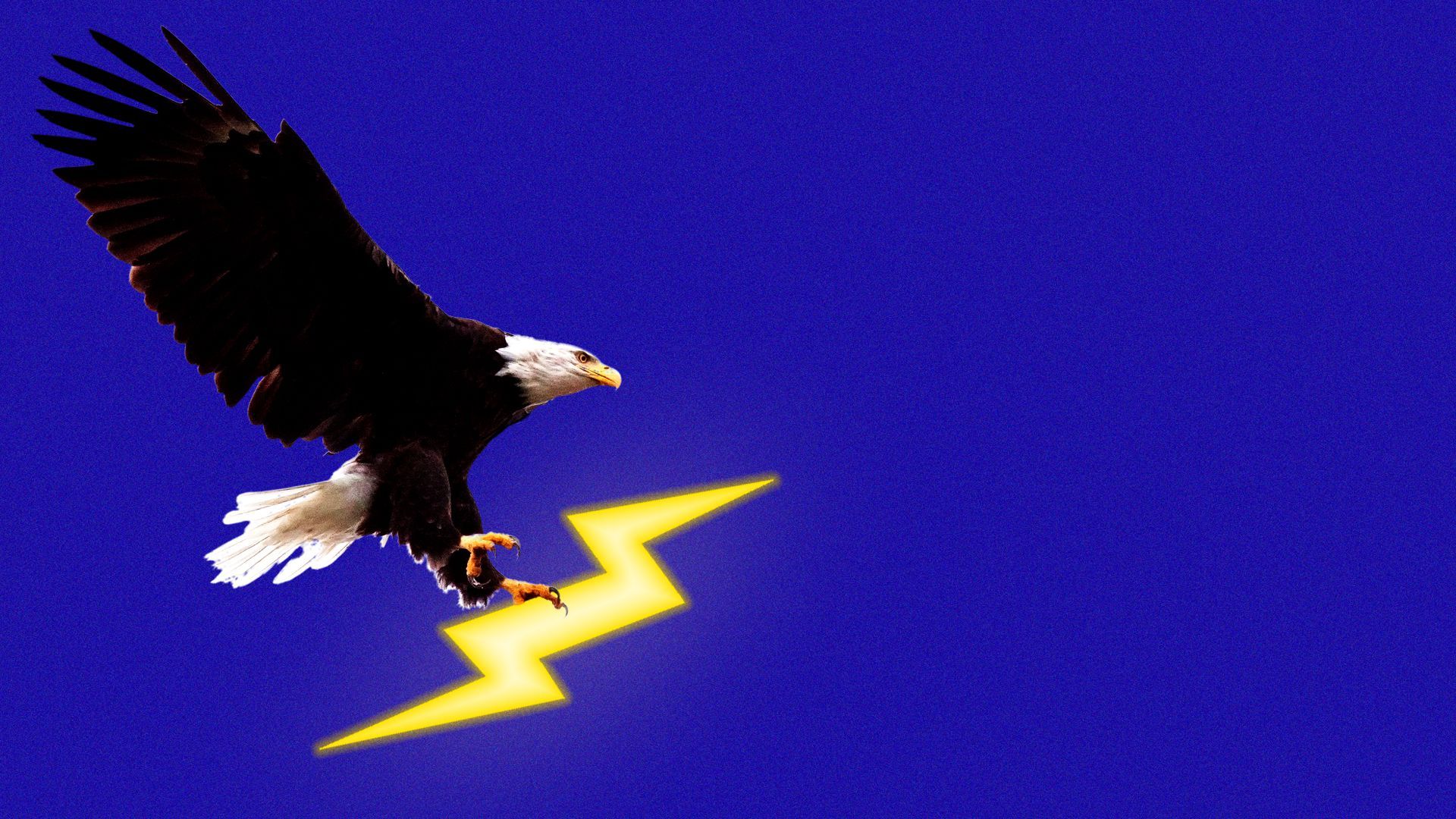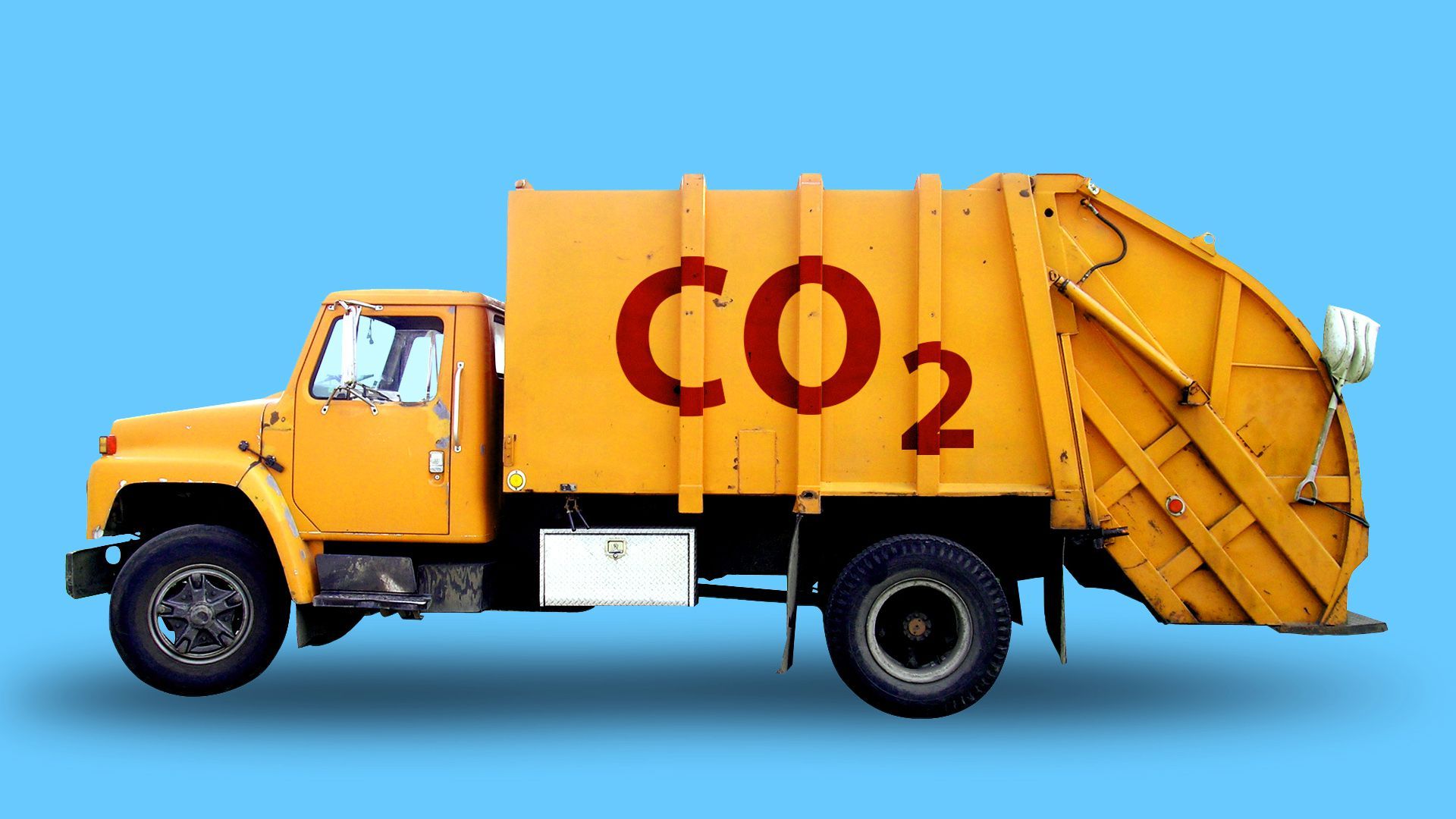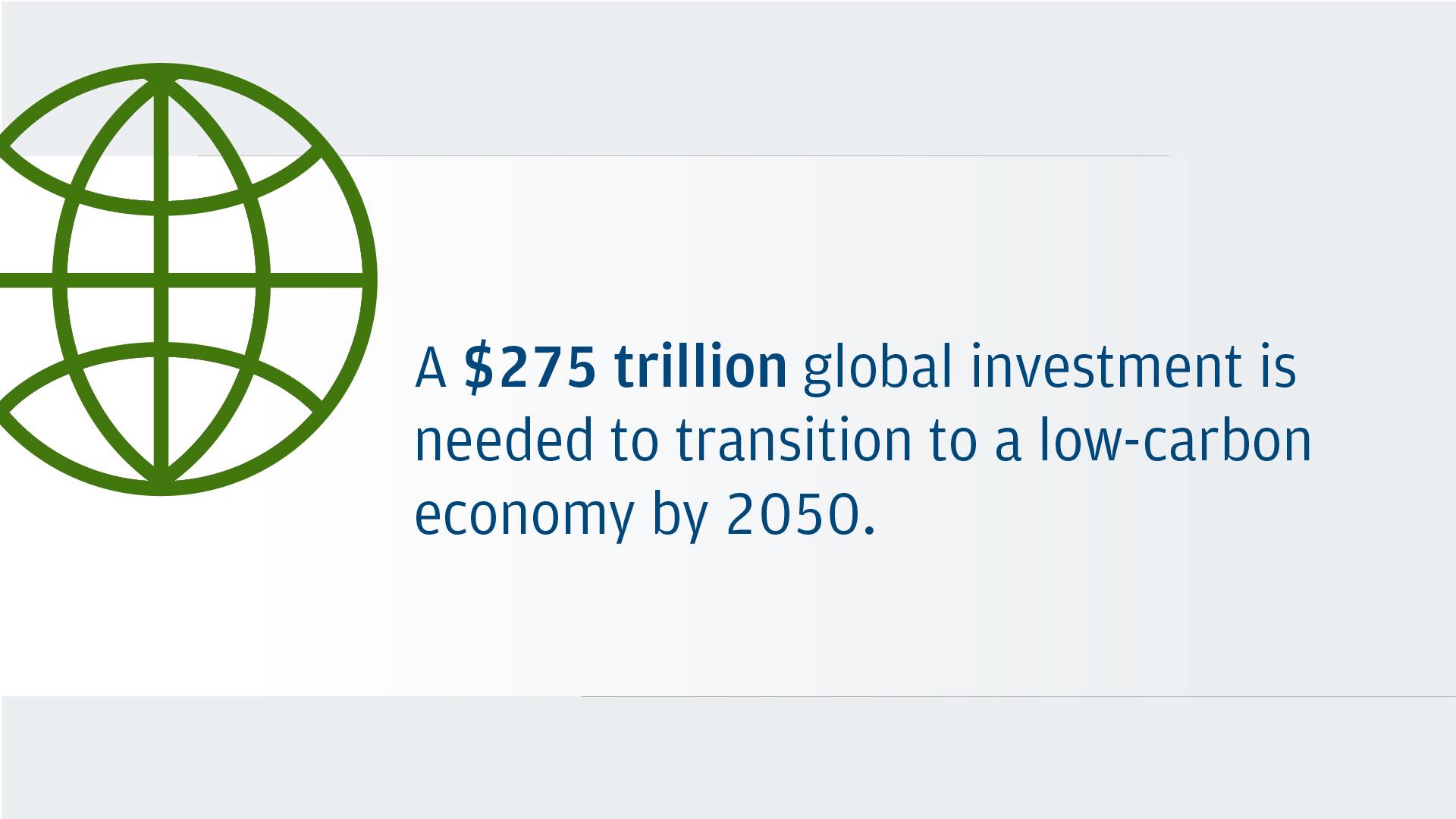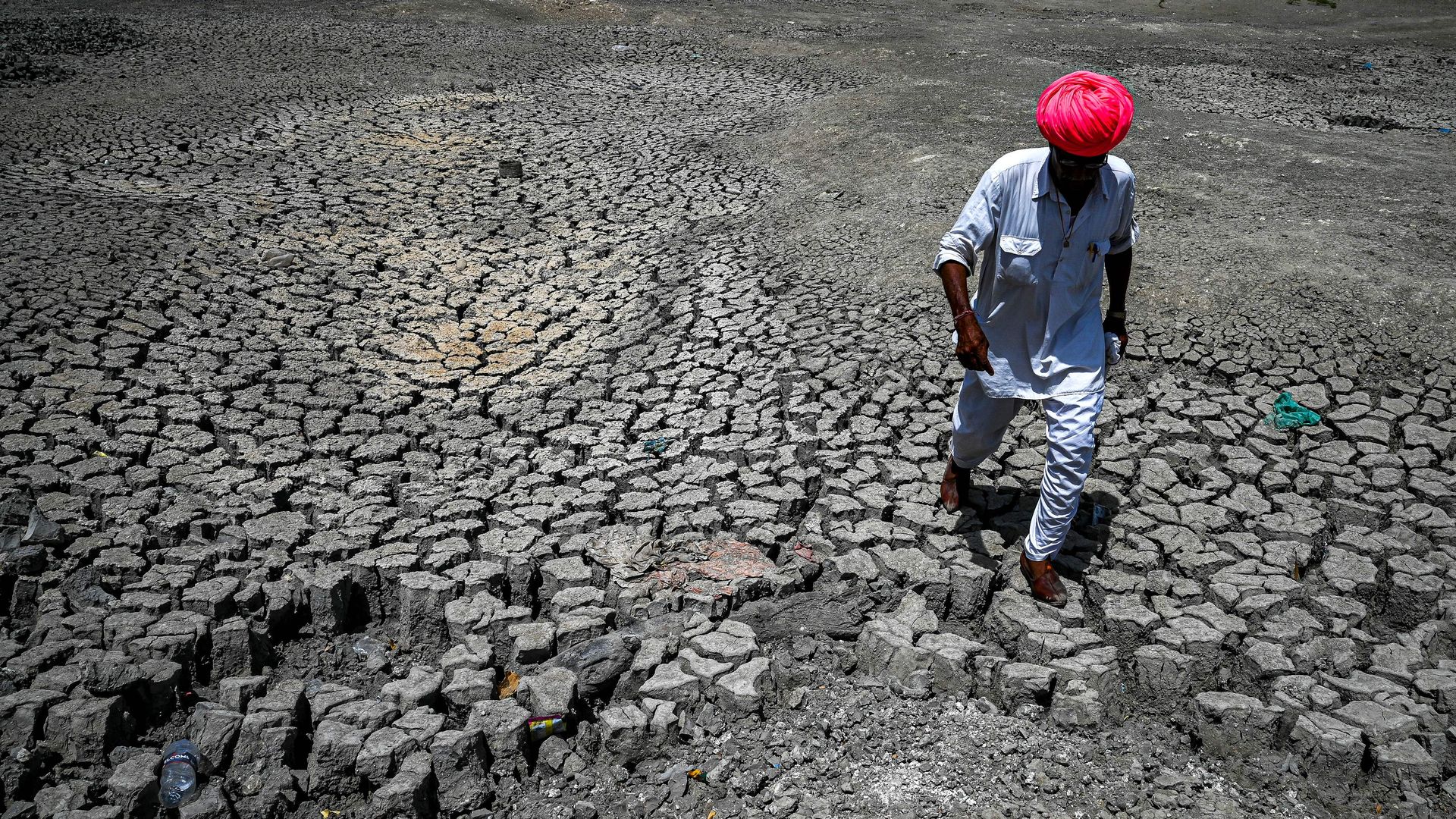| | | | | | | Presented By JPMorgan Chase | | | | Axios Generate | | By Ben Geman and Andrew Freedman · May 24, 2022 | | 🚀 Off we go! Today's Smart Brevity count is 1,123 words, 4.5 minutes. 📬 Did a friend send you this newsletter? Welcome, please sign up. 🎸 This week marks 30 years since groundbreaking roots rockers Los Lobos released the album "Kiko," which provides today's intro tune... | | | | | | 1 big thing: Industry heavyweights unite in U.S. battery push |  | | | Illustration: Shoshana Gordon/Axios | | | | First look: Auto giants are joining with battery companies, EV startups and lithium producers in a new coalition seeking stronger federal support for building a large U.S. battery supply chain, Ben writes. Driving the news: The Coalition for American Battery Independence (CABI) launches today. - Members include General Motors, Ford, Panasonic, Tesla, Form Energy, Albemarle, Proterra and the Zero Emission Transportation Association.
- The group, run via the lobbying firm Boundary Stone Partners, targets batteries for electric vehicles and storage.
- The goal: cohesive support for everything from raw materials processing and refining to component manufacturing to making battery packs.
Why it matters: Battery demand is slated to surge in coming years and decades. There's intense global competition to build supply chains (and expand and diversify mining, a challenge that's not a current CABI focus). It's "critically imperative for our energy and climate security to re-shore these battery materials and manufacturing capacity," CABI said. The big picture: The Biden administration is trying to boost the supply chain with steps like Energy Department grants and loan guarantees. But Mike Carr of Boundary Stone — which represents several CABI members — said more holistic policies are needed. - The group will initially work behind the scenes with policymakers, he said.
- It wants Congress to pass tax incentives for manufacturing and processing.
- Executive support could include use of the Defense Production Act and other purchasing authorities, Carr said.
Catch up fast: While multiple U.S. battery projects are planned, the U.S. now has a fairly small piece of the industry. China produces three-fourths of lithium-ion batteries; has by far the largest cathode and anode production; and over half of lithium, cobalt and graphite processing and refining capacity, per the International Energy Agency. |     | | | | | | 2. Exclusive: Direct air capture coalition launches |  | | | Illustration: Annelise Capossela/Axios | | | | A new direct air capture coalition is launching today that aims to be a convener for the players in this growing field, Andrew writes. - It includes a slew of private companies, such as Climeworks, as well as nonprofits, universities and philanthropies.
Why it matters: Until now, it has been left to individual players in the nascent air capture space to explain what it is and set goals. Context: Climate scientists say that scaling carbon dioxide removal technologies, such as direct air capture, is needed for the world to decarbonize hard to abate sectors and reach net-zero emissions. This is a daunting task. The big picture: The coalition will have a global focus and seeks to include nongovernmental (NGO) and civil society groups that have concerns about equity and sustainability, co-founder and board member Nicholas Eisenberger told Axios in an interview. - The coalition has no plans to lobby governments, he said. Eisenberger is president of Global Thermostat, a direct air capture company that is a coalition member.
What's next: The group plans on holding a summit during the next year to produce a roadmap for the direct air capture industry through 2030. - "We really think what we bring to the table is that unique front line perspective from these different stakeholders who are working on it," Eisenberger said.
Of note: The group already has an Africa-based adviser, James Mwangi, who is the executive director of the Dalberg Group. |     | | | | | | 3. Energy's role in the new Indo-Pacific trade push |  | | | Illustration: Sarah Grillo/Axios | | | | Clean energy and decarbonization are jointly one of four pillars in the Indo-Pacific Economic Framework for Prosperity (IPEF) unveiled Monday between the U.S. and 12 nations, Ben writes. Yes, but: The planned trading and economic framework could become part of a wider trend: Climate initiatives that are ambitious but lack teeth. Driving the news: The countries include India, Japan, Indonesia, Malaysia, South Korea, Vietnam and others. Specifics of the framework President Biden announced in Tokyo will be hashed out over months. Why it matters: Commerce Secretary Gina Raimondo told reporters one goal is "high ambition commitments" around renewables, carbon removal purchases, efficiency standards and more. The intrigue: IPEF isn't a traditional trade pact that requires congressional approval, and, per multiple reports, key elements remain unknown as more granular negotiations commence. Raimondo said there will be "firm commitments" that are enforceable, but added, "The greatest enforcement is that if you don't hold up your end of the bargain, you don't receive the benefits." Quick take: We'll see how it shakes out, but if it wants company in the club of rather loose arrangements, there's plenty. - For instance, many countries joined a nonbinding pact to phase down coal at the 2021 United Nations climate summit in Glasgow.
- The centerpiece of the Paris Agreement is nonbinding national emissions-cutting pledges.
|     | | | | | | A message from JPMorgan Chase | | The role of business in the path to a greener future | | |  | | | | Businesses are stepping up to mobilize capital and pursue innovations to help address climate change. Looking ahead: By the end of 2030, JPMorgan Chase aims to finance and facilitate $1 trillion for green initiatives. Read about five sustainability trends their leaders see on the horizon. | | | | | | 4. Study: Climate change fueled India's heat wave |  | | | A dried-out pond at Bandai village in Pali district, India, during a heat wave on May 11. Photo: Prakash Singh/AFP via Getty Images | | | | Human-caused climate change ratcheted up the odds and severity of the record-shattering heat wave that has gripped India and Pakistan since March, a new study finds, Andrew writes. Why it matters: The climate attribution study is the first to specifically examine the factors behind the 2022 heat wave. Zoom in: The research comes from more than two-dozen scientists affiliated with the World Weather Attribution project, which uses peer-reviewed methods to conduct rapid analyses of how climate change has influenced an extreme weather event. - They examined the average daily maximum high temperatures from March through April 2022 and simulated the period using computer models that included the modern increase in greenhouse gases.
- They compared these simulations with the same models run without added CO2.
- They found that human emissions of greenhouse gases made this event about 1°C hotter, on average, with the probability of occurrence increasing by a factor of 30.
Threat level: If global average temperatures reach 2°C above preindustrial levels, a heat wave of this magnitude and duration would become another 2% to 20% more likely, and up to 1.5°C hotter than the 2022 event, the study found. What they're saying: "[In] a world without climate change, this event was highly, highly unlikely," said Arpita Mondal, a study co-author from the Indian Institute of Technology Mumbai, on a call with reporters. Read the whole story. |     | | | | | | 5. 🏃🏽♀️Catch up fast: banking drama, Brazil, hydrogen | | 🎭 "HSBC is in damage-control mode after a senior executive said policymakers and central bankers had exaggerated the financial risk of climate change." (NYT) 🛑 "Brazilian President Jair Bolsonaro fired the chief executive officer of state-run Petroleo Brasileiro SA a little over a month after appointing him to the job as the fight over high fuel costs escalates." (Bloomberg) 🤝🏽 "The Abu Dhabi National Oil Company, oil major BP and Abu Dhabi future energy company Masdar have joined forces to develop clean hydrogen and technology hubs." (Reuters) |     | | | | | | 6. Charted: Drivers are getting more EV-curious |  Data: EY Mobility Consumer Index; Chart: Axios Visuals New Ernst & Young research shows consumer interest in electric vehicles has hit a global tipping point, Joann Muller reports. Driving the news: 52% of respondents to EY's annual Mobility Consumer Index who are looking to buy a car want an EV, the survey of 13,000 people in 18 countries found. That's a 22% jump in two years, and the first time EV interest exceeded 50% in the survey. Read the whole story. |     | | | | | | A message from JPMorgan Chase | | A climate scientist on financing the future | | |  | | | | Dr. Sarah Kapnick, JPMorgan Chase's senior climate scientist and sustainability strategist, helps the firm and its clients understand the science behind climate change. Learn more about her role and why she believes that climate is woven into every aspect of our lives. | | | | Thanks to Mickey Meece for the copy edits, and to you, for reading. |  | It's called Smart Brevity®. Over 200 orgs use it — in a tool called Axios HQ — to drive productivity with clearer workplace communications. | | | | | | Axios thanks our partners for supporting our newsletters. If you're interested in advertising, learn more here.
Sponsorship has no influence on editorial content. Axios, 3100 Clarendon Blvd, Suite 1300, Arlington VA 22201 | | | You received this email because you signed up for newsletters from Axios.
Change your preferences or unsubscribe here. | | | Was this email forwarded to you?
Sign up now to get Axios in your inbox. | | | | Follow Axios on social media:    | | | | | |









No comments:
Post a Comment